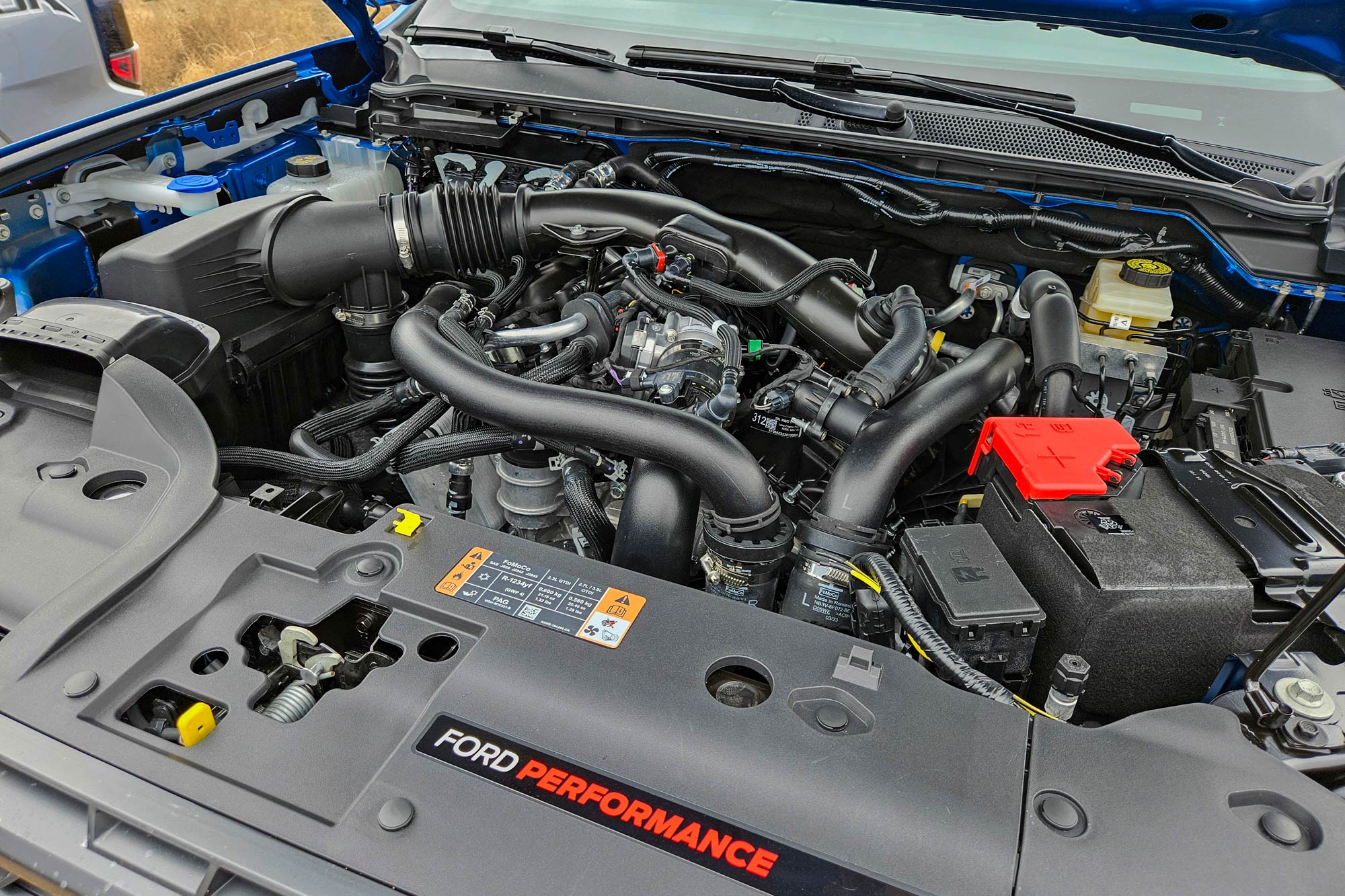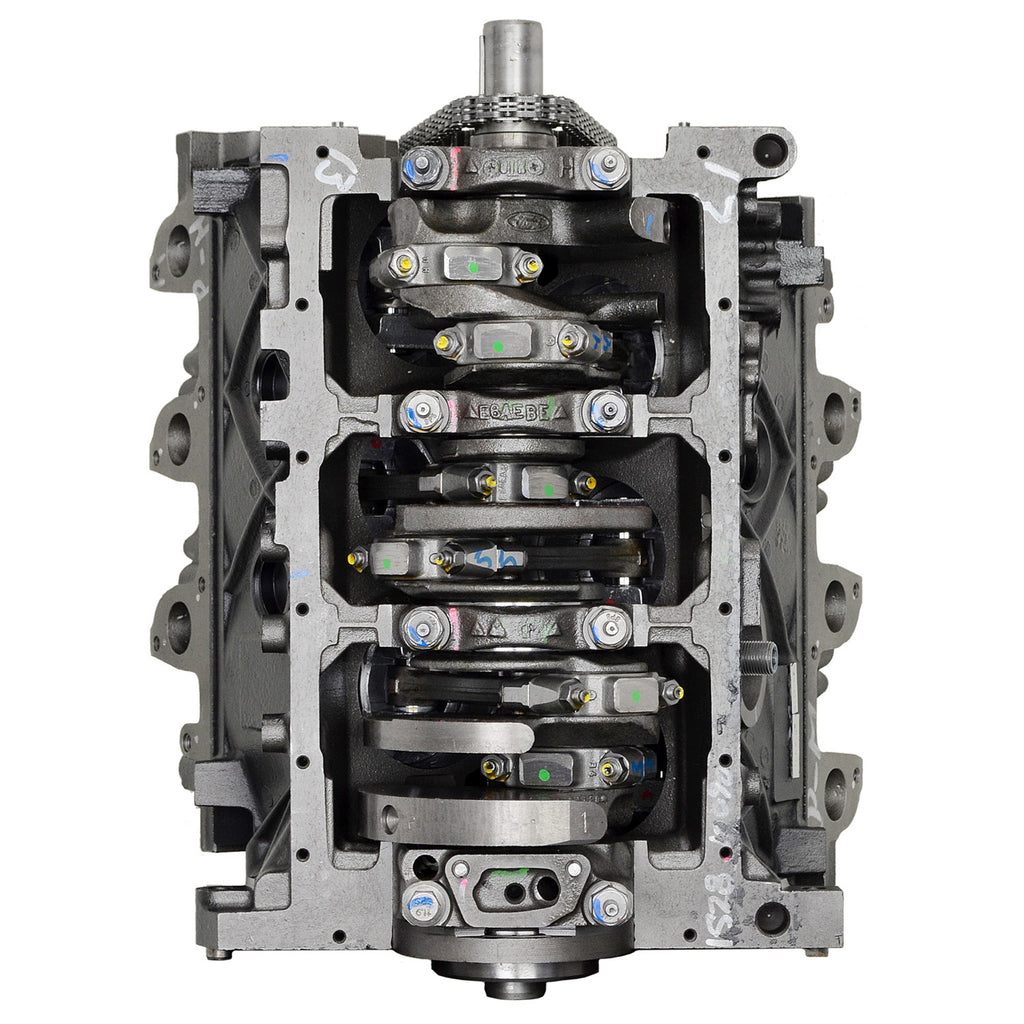The 2.2 Ford Ranger Engine: Ideal for Towing, Off-Roading, and Everyday Use
Exactly How to Select the Right Cars And Truck Engine for Optimum Performance and Efficiency
Choosing the proper auto engine to attain an ideal equilibrium of performance and performance requires a nuanced understanding of numerous engine types and their certain qualities. Factors such as engine variation, the number of cyndrical tubes, and gas type play a crucial function in determining both power outcome and fuel economic situation. While some might lean towards performance-driven choices, others may focus on sustainability and performance. Understanding these dynamics is vital; however, the difficulty hinges on straightening these features with your individual driving preferences and demands. What considerations will inevitably guide your decision?
Understanding Engine Types
When choosing a vehicle, among the most vital components to think about is the engine type, which works as the heart of the vehicle. The engine type dramatically affects the car's overall performance, durability, and suitability for your driving requirements. There are mostly three engine types to think about: inner combustion engines (ICE), hybrid engines, and electric engines.
Inner burning engines stay one of the most usual, running on gasoline or diesel. They are known for their power and acceleration, making them suitable for performance-oriented cars. They might fall short in fuel efficiency and environmental effect.
Hybrid engines integrate an inner burning engine with an electrical motor, supplying an equilibrium between performance and gas economic climate. They are significantly preferred for drivers looking for reduced discharges while still providing adequate power.
Electric engines, powered entirely by batteries, are acquiring traction due to their ecological advantages and lower running costs. They provide instant torque and a peaceful driving experience, making them suitable for metropolitan commuting.

Efficiency vs. Efficiency
Picking the right engine type involves evaluating the compromises between efficiency and performance. Performance usually refers to exactly how well an engine can deliver power and velocity, which is usually linked with larger variation engines or those with turbocharging abilities. These engines typically supply exciting driving experiences and quick feedback times, making them popular amongst fanatics.
On the various other hand, effectiveness focuses on fuel economy and lower exhausts. Smaller engines, especially those furnished with innovative innovations such as straight gas injection and variable shutoff timing, have a tendency to supply better miles per gallon and minimized carbon impacts. While these engines might sacrifice some power compared to their larger equivalents, they often succeed in day-to-day driving scenarios where high performance is not constantly needed.
Ultimately, the option in between efficiency and efficiency depend upon individual concerns. A chauffeur that values spirited driving may focus on a high-performance engine, while somebody seeking cost-efficient travelling might favor an efficient choice. Comprehending these trade-offs is crucial for making a notified choice that aligns with your driving needs and lifestyle, ensuring that the picked engine kind enhances your assumptions for both performance and performance.
Secret Specifications to Consider
Understanding key requirements is crucial for making a notified decision about the best car engine. When choosing an engine, several essential factors necessitate factor to consider to make certain optimal efficiency and effectiveness.
It suggests the overall quantity of the engine's cylinders and usually correlates with power outcome; larger variations often generate more power. Engines with even more cylinders can supply smoother operation and higher power, while smaller setups can enhance gas efficiency.
In addition, the engine's setup, whether inline, V-type, or rotating, influences the total style and efficiency qualities of the vehicle - 2.2 ford ranger engine. Turbocharging and turbo charging modern technologies ought to additionally be assessed; these increase an engine's power result without considerably enhancing its dimension, therefore enhancing effectiveness
Gas type is one more vital consideration, as it influences both efficiency and costs. Lastly, the engine's compression ratio influences effectiveness and power delivery; a higher ratio usually brings about far better effectiveness, but might need exceptional fuel. By thoroughly examining these specifications, you can choose an engine that aligns with your performance and effectiveness objectives.
Evaluating Driving Needs
Reviewing driving needs is an essential step in determining the appropriate automobile engine for your lifestyle and use patterns. If your driving largely is composed of short commutes in city settings, a smaller engine with good gas efficiency might be sufficient.
Consider the surface you usually browse. Hilly or tough landscapes may require see page an engine with higher torque for better efficiency. In addition, mirror on passenger and cargo requirements; bigger families or those that transport goods might profit from automobiles with raised power and capability.
Diesel engines frequently provide remarkable torque and gas economy for much heavier automobiles, while gasoline engines might provide a smoother and quieter trip. Aspect in ecological considerations, as hybrid or electric engines can provide an extra lasting alternative without sacrificing performance.
Future Patterns in Engine Modern Technology
As the automobile market remains to develop, advancements in engine innovation are leading the way for a lot more reliable and lasting driving experiences. One substantial fad is the shift toward electrification, with hybrid and totally electric powertrains acquiring importance. Automakers are spending greatly in battery modern technology to enhance power thickness and minimize charging times, ultimately boosting the practicality of electric cars (EVs)
Another arising pattern is the development of hydrogen gas cell engines. 2.2 ford ranger engine. These systems use the capacity for zero-emission driving while offering refueling times comparable to conventional gasoline engines. In addition, developments in burning modern technology, such as variable compression proportions and enhanced turbocharging, are enhancing standard internal burning engines for much better efficiency and efficiency
Digital integration is additionally a critical facet of future engine innovation. The execution of expert system and device discovering enables real-time data analysis, enabling smarter engine management systems that adjust to driving problems and enhance fuel efficiency.

Final Thought
To conclude, choosing the appropriate car engine requires a thorough assessment of different elements, consisting of engine type, performance demands, and performance goals. By recognizing the distinctions in between various engine kinds and considering crucial requirements, individuals can straighten their options with specific driving needs. As innovations in engine technology continue to emerge, staying notified concerning future fads will certainly additionally enhance decision-making, eventually causing a lorry that stabilizes efficiency and gas performance effectively.
Selecting the proper vehicle engine to accomplish an optimal balance of performance and efficiency requires a nuanced understanding of different engine types and their certain attributes. There are largely 3 engine kinds to take into consideration: inner burning engines (ICE), hybrid engines, and electric engines.
Performance typically refers to exactly how well an engine can provide power and velocity, which is commonly linked blog with bigger displacement engines or those with turbocharging abilities. Diesel engines commonly provide superior torque and gas economy for larger vehicles, while gas engines may supply a smoother and quieter ride.In verdict, selecting the suitable cars and truck engine Bonuses necessitates a detailed examination of various factors, consisting of engine kind, performance requirements, and efficiency goals.